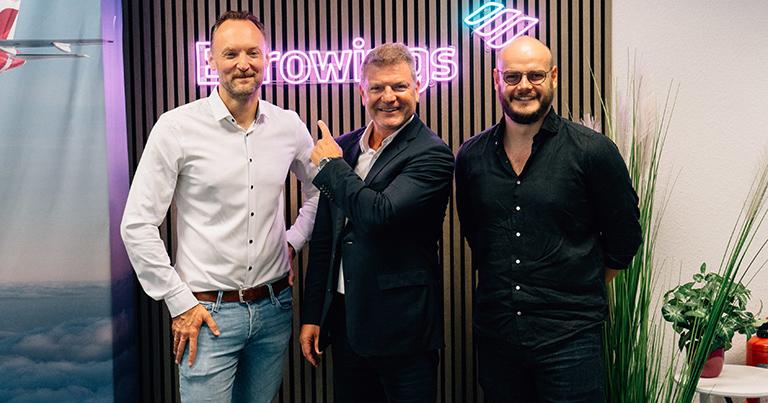
Eurowings, Eurowings Digital and zeroG have collaborated to stage a hackathon – ‘Coding Wings for Gravity’ – designed to leverage data and Artificial Intelligence (AI) to drive innovation within the aviation industry.
“Our hackathon is about more than just innovation – it’s about using data and Artificial Intelligence to improve the future of aviation in the short and long-term,” said Johannes Hansen, Managing Director at Eurowings Digital and CIO at Eurowings. “What makes this event special, is the direct collaboration between data scientists and airline professionals from all business functions, allowing us to create solutions that are not just theoretical, but are grounded in real-world applications and ready to make an impact.”
Over 100 participants – data scientists and AI experts from zeroG, partnering with analysts and data experts from Eurowings – formed the core of the hackathon. The teams worked in small, focused groups to develop innovative concepts demonstrating how Machine Learning and Artificial Intelligence can be effectively applied at Eurowings and Eurowings Digital.
The evaluated use cases include:
- Estimated Waiting Time Check-In:Developing an app that provides passengers with estimated check-in waiting times, enhancing the airport experience by reducing uncertainty and improving time management.
- Buy-On-Board Prediction: An AI-driven predictive model to optimise the loading of fresh food onboard, reducing waste and maximising profitability by accurately predicting demand.
- No-Show Prediction: This use case focuses on predicting passenger no-shows at the gate, enabling more efficient luggage handling and minimising delays caused by off-loading baggage.
- Data-Driven Route Profitability Analysis:Automating the data screening process to identify ‘data highlights’ by streamlining the controlling function with data-driven recommendations.
- Trip Purpose Segmentation:Advancing customer segmentation by clustering trip purposes beyond broad categories like leisure or business, refining customer understanding for targeted offerings.







